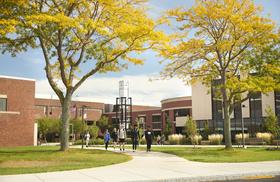Introduction
Community colleges offer an accessible and cost-effective pathway to postsecondary credentials. In the 2025 labor market, many students and families are especially interested not just in completion, but in whether those credentials lead to well-paying jobs. Fortunately, some community college majors are strongly aligned with high-demand, better-paying career pathways.
This article identifies community college majors that tend to lead to higher earnings (or the potential for them), outlines considerations and caveats, and offers guidance for students planning career-oriented pathways.
Why Major Choice Matters (Even at a Two-Year College)
While community colleges are often thought of as “stepping stones” to four-year degrees, many students enter the workforce directly with associate degrees or certificates. Research by the Community College Research Center (CCRC) shows that:
In 2022–23, 56 % of credentials awarded (associate degrees, long and short-term certificates) were workforce or career-technical credentials.
About 48 % of those credentials are associated with median earnings well above a living wage two years post-completion.
Fields such as nursing, allied health technology, industrial/trades, construction technology, and engineering technology were among those most frequently linked to higher earnings. Community College Research Center+2ateimpacts.net
Thus, the choice of major can significantly influence whether a student ends up in a job that pays well, or one that barely covers basic expenses.
That said, no major guarantees success. Outcomes depend on local labor markets, internships/apprenticeships, credential levels, certifications, and networking.
Top Community College Majors with Strong Pay Potential (2025 Perspective)
Below are some of the most consistently high-performing or promising majors at community colleges, based on earnings data, job growth, and industry demand.
| Major / Field | Typical Credential(s) | Key Pathways / Jobs | Notes on Pay & Demand |
|---|---|---|---|
| Registered Nursing / Licensed Practical Nursing (LPN / RN bridge) | Associate of Science in Nursing, LPN certificates | RN, LPN, home health, clinical settings | Nursing is among the top fields with credentials yielding “well above” living-wage outcomes in CCRC’s analysis. (Community College Research Center) |
| Allied Health Technology | Associate or certificate in fields like respiratory therapy, radiologic tech, medical lab tech | Radiologic technologist, lab tech, respiratory therapist, ultrasound tech | Allied health is often grouped with nursing in top-earning credential categories. (Community College Research Center) |
| Engineering / Engineering Technology | Associate of Applied Science in engineering technology (mechanical, electrical, civil) | CAD technician, industrial technologist, equipment maintenance | Engineering technology credentials were among those strongly associated with higher earnings. (Community College Research Center) |
| Industrial / Construction Trades & Technology | Certificates or associate programs in welding, HVAC, machining, construction management | Electrician, welder, HVAC tech, CNC machinist | These trades appear in the “well above living wage” categories in analysis. (Community College Research Center) |
| Computer & Information Technology / Cybersecurity | Associate in IT, network administrator, cybersecurity certificate | Systems admin, network security, help desk, cloud technician | While often classified as “near living wage” in CCRC data, the tech sector remains highly demand-driven. (Community College Research Center) |
| Business / Accounting / Financial Services | Associate in Business, Accounting, Finance | Account clerk, tax preparer, bookkeeping, financial services support | Business credentials often fall lower in earnings outcomes per CCRC, but in broader labor statistics, mid-career earnings are strong (e.g. finance majors) (Bestcolleges.com) |
| Paralegal / Legal Studies | Associate in Paralegal Studies | Paralegal, legal assistant, compliance roles | Some community colleges highlight paralegal credentials as high-return options. (nhcc.edu) |
Spotlight: IT & Tech Careers
In many regions and industries, IT and cybersecurity roles can command premium wages, especially when a candidate holds both a credential and relevant certifications (e.g. Cisco, CompTIA, AWS). Community college graduates with strong portfolios or internship experience often outperform entry-level four-year graduates in tech roles.
In fact, a recent article on fastest-growing jobs for community college graduates cited cyber-security and technology-related jobs specifically as having strong growth potential. Community College Review
What the Broader Labor Data Suggests
To contextualize the high-potential majors above, consider how those fields rank in broader postsecondary major salary data:
Among all college majors, engineering disciplines, computer science, and finance consistently top mid-career earnings charts. Bestcolleges.com
For instance, majors like computer engineering, electrical engineering, mechanical engineering, and computer science often report median mid-career salaries exceeding $115,000. Bestcolleges.com
However, many of those results derive from four-year degree holders. The key for community college students is to find majors that can lead into those paths or provide strong entry-level roles.
Best Practices for Maximizing Earnings in Any Major
Choosing a high-potential major is just the first step—how you structure your pathway matters greatly.
Seek colleges aligned with local industry demand. A major that pays well in Silicon Valley may not translate in a region where tech firms are scarce.
Stack credentials and certifications. For example, a student in a cybersecurity associate program should also aim for vendor certifications (e.g., CompTIA, Cisco).
Pursue apprenticeships, internships, work-based learning. These often lead directly to job offers or superior experience in hiring.
Plan for transfer if beneficial. Many students use their community college major as a springboard to a bachelor's degree in fields like computer science or engineering.
Supplement soft skills and leadership. Communication, project management, and teamwork skills can differentiate one candidate in many fields.
Stay current with technology and fundamentals. In tech, trades, and health, evolving tools and regulations make ongoing learning essential.
Cautions & Caveats
Regional variation is strong. What pays well in one market may not in another. Always investigate labor statistics in your intended region.
Entry-level salary lag. Some high-demand majors pay modestly at first and scale with experience or specialization.
Credential limitations. Lower-level certificates may not unlock enough earning potential compared to more advanced credentials.
Job automation risk. Fields like general administrative support or basic bookkeeping face automation pressures; specialized or technical roles generally hold up better.
Earnings data ports carefully. CCRC and other studies frequently use “median earnings two years post-completion” which may not reflect full career trajectories. Community College Daily
Strategic Path Planning: Sample Scenarios
Scenario A: Aspiring RN with a tight budget
Enroll in a two-year associate nursing program.
Supplement with certifications (e.g., CPR, specialty interest).
Work part-time in healthcare to gain experience and network.
Optional: After two years, consider RN-to-BSN bridging.
Scenario B: Budding tech professional in a growing metro area
Choose an IT or cybersecurity associate program.
Simultaneously earn industry-recognized certifications.
Seek internships in local firms or government.
If possible, transfer credits into a bachelor's in computer science or information systems.
Scenario C: Craft & trade specialist
Enroll in HVAC, welding, or machining certificate/associate program.
Gain work experience via apprenticeships.
Acquire professional certifications or licenses.
Over time, expand to supervisory or project management roles with additional credentials.
Conclusion & Recommendations
For prospective students and families considering community college majors, focus on those with documented alignment to higher-earning outcomes: nursing, allied health, engineering technology, trades, and IT. Complement these with credential stacking, internships, and regionally informed planning.
By combining smart major selection with experiential learning and strategic credentialing, community college students can position themselves to enter careers that pay well and grow over time—without needing to shoulder the cost and delay of a four-year program from the start.















